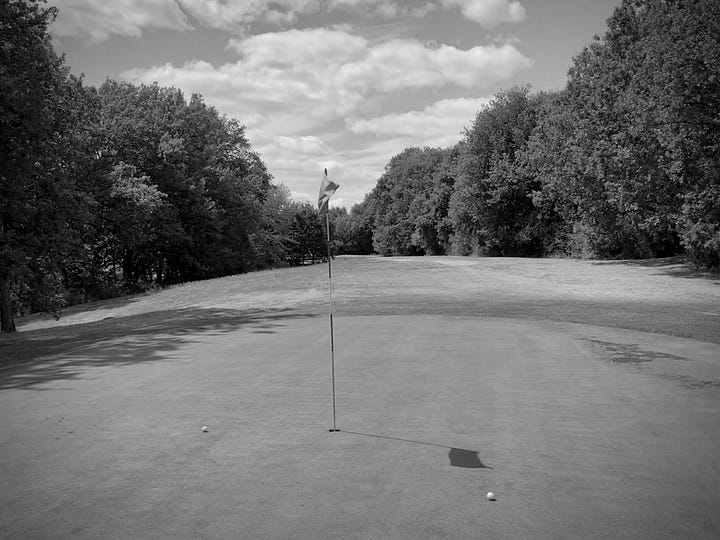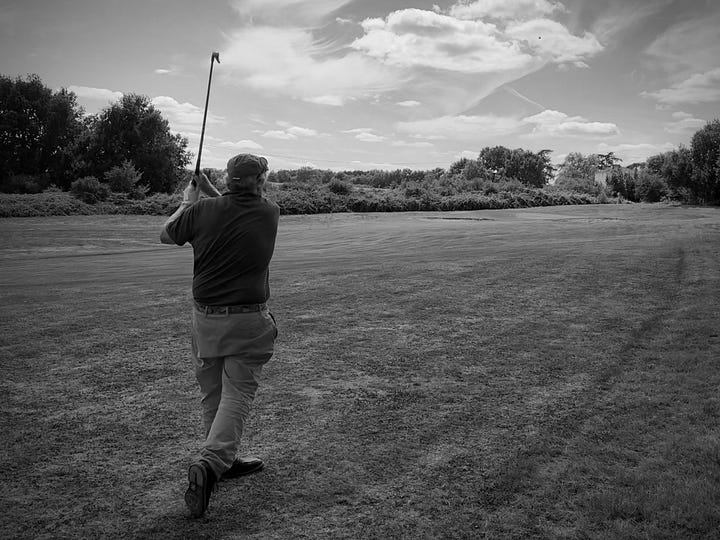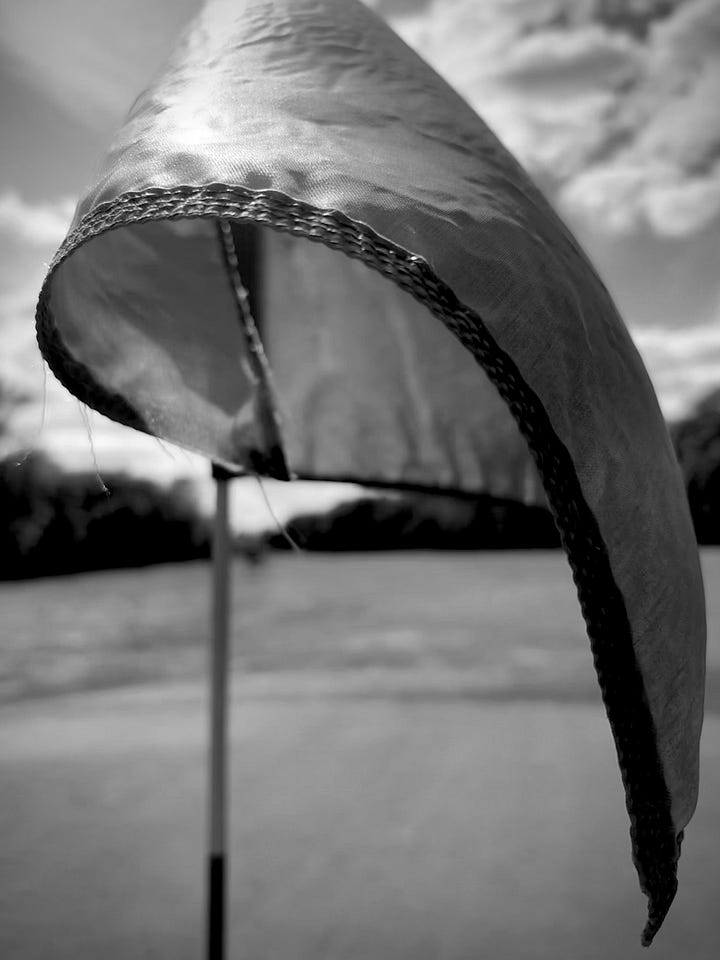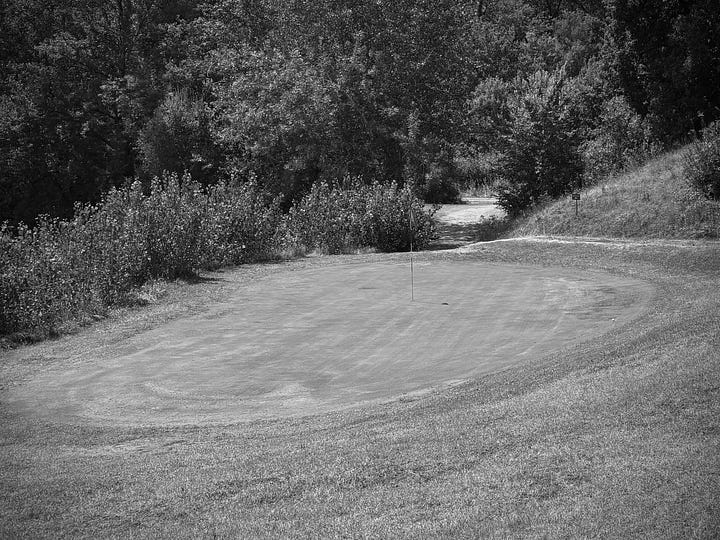Pitchmarks #110 - “Parts Unknown”




A friend - a kindred spirit, I like to think - sends me a note in early July that I spend the rest of the month thinking about. It concerns the modern world, and exposure, and of how when certain interesting things get more publicity than they perhaps need, a dial is turned that is very hard to turn back. This could apply to a rock band perhaps, thrust into the spotlight by a hit single with no escape route available. Or a sublime coastal road, unprepared for the hordes of box-ticking motorhomes.
We’re talking instead about golf, of course, but the quote he includes is brilliant, for it sets the scene perfectly. The late, great Anthony Bourdain - speaking as he always did with a self-awareness that seems especially rare in celebrity - saw this conflict in his own search for what he called “Parts Unknown”, noting that “the minute someone like me walks into your restaurant, it’s over. I’m the harbinger of doom. Enjoy your success, because the crowds are coming, and soon after that, the soul of the place will be gone.”
He could be writing about a place that my friend and I love dearly - a place we only became aware of because we look beyond the obvious sometimes, and have this sense of adventure that actively ignores the “discovered”. But in a world in which information can spring so quickly, and where imagery is so very powerful, such places might not drift beneath the radar for long, and then - like the sheep that we humans really are - we all start the follow these beaten tracks, and the transport becomes easier, and the course or the menu or the album gets a little more polished, and “the soul of the place will be gone”. We contaminate the things we love if we shout too loud.
Or in another case - that he and I know well, and selfishly wish we could have kept to ourselves for it is…or perhaps was…so wonderful - the sheep themselves are gone, along with a good part of the charm and the whole damned point of it all. Bourdain again, for few could transmit this stuff as poignantly as he can: “There’s something tragic about a place that loses what made it special, just to cater to people like me.”
So August arrives, and - from a remote spot in Gascony far too wonderful to name, where for miles around blazing sunflowers stand proud - the chance of another few holes with a different dear friend, Michael, arrives. And it is seized, and he takes me to a place I think he loves as much as the famous joints he often plays, for it has for him “a tremendous charm”. We are in France, of course, so “tremendous charm” hits us long before we reach the first tee, and the goddess at the counter rushes to find us a pencil with which to record our experiences, but we shall return it intact, for we are only here to hit great shots, and no score could be anything like as satisfying. The name of this place does not feature in any course guides you might find, nor need it feature here, but still it exists, and seems to promise and deliver exactly what we seek on an afternoon like this - a timeless sort of game, shuffling around with some old sticks and a few balls, and here and there the views and the chats and the shots that imbed us in the moment; that make us feel alive.
At the first, a tiny green hides down a little chute, so that you have to smuggle the ball in past the front edge of the right bunker. Then the second, where the tee shot must stay further right than you think, and the green taunts you from the far corner of this field. The third is perfidious, to steal a word from my playing partner, after looking it up. It’s somehow a distant cousin of Swinley’s eighth, but with a gentle roll of land that hides the bottom of the pin from us on the tee. I wonder if there is a course on the planet - among the ten thousand that people who declare such things probably think are “better” than this one - that would not be improved by switching out one of their short holes for this gem of ours, and though we’ve only signed up for one loop of nine, we both know we’ll be carrying on for another stab at this new foe.
And so it goes on, charm without fuss, golf without a care. Up the seventh, I lose one hard left then a mulligan harder right, and drop a third ball in the centre of the baked fairway, for the pencil isn’t looking. It is, my host tells me, a three club hill, but I’ve a half-set so that means a two or four club hill, and still I can’t quite get there. From both the eighth and the ninth, I slash at my drives, and become intimately acquainted with a little strip of trees and shrubs that splits these two fairways apart. And my hooked balls stay in there somewhere, but I pick up a few more, and am relieved to know folk have passed this way before. Smiling, no doubt.
From the ninth green we roll straight back onto the first, and play from one to four and the last two again, and this time Michael makes a birdie three at the first, and chips in for another at the second. On the third tee, he suggests that this may be his “one chance in this life to start with three birdies”, and his fabulous tee shot trundles over the front ridge on a line that is too good to be true. We approach to find his ball near mine - as far away as it could possibly be after the glory of the strike - and a rush of blood to the head sees his quest for a two racing just past the lip, as we both gasp at the injustice of it all.
On the way home, Michael asks me if all of this writing “changes me”, and I try to explain, and probably fail. It’s not that I think I can do it, for most mornings I can’t - just like golf. And it’s not that I want these places to be known, or overrun, for there’s something so delicious about secrets. But writing anchors me in the present, to some degree - makes me notice the little swales and the stonechats and the funny waggles and wry smiles of my golfing friends. And I don’t need the goddess’s pencil or a handicap record to remind me of days spent in this sort of pointless bliss, for - in writing about them, and thinking about writing about them - they are always with me, and the people and the holes and a few of the shots, as well.
And now, in the cool light of the morning, as the sun bleaches the fields all around, I think about this simpler, rural way of life that the French seem so happy inside, and mourn it, in a way. I get to peer at it, as if my nose were pressed against the window, when I play golf or look at fine art or watch my dog panting in the shade. And I hope that when one day I stroll up my final fairway, I shall turn around and sense that I saw - and didn’t manage to spoil - a few “Parts Unknown” of my own. Found my own path, not always in the footprints of the others.
The important bit might be that we are anchored in the present when we do this sort of thing - the “how”, and - of course - the “who”. The “where” and “what” might just be technical details by comparison, no more than garnishes to the main course. And the final three words of the text that got me started seem even more appropriate now: “Attention changes things”. For the better.



There is no doubt that “Attention (publicity) changes everything”. Places that spring to mind are the NC500 and Brora. Losing the animals at Brora seems, to me, that they are losing a huge part of the charm that brings people to play the course, in marketing terms their ‘Unique Selling Point’ so it may well be that less people go North to play this gem with the animals gone. Whilst some locals love the business the NC500 brings others wish it had never been dreamt up. Change is a given in our modern world, however, not all change is for the better.
Shush, 🤫 as long as you take me when I come to visit… I won’t tell a soul.🤷♂️⛳️